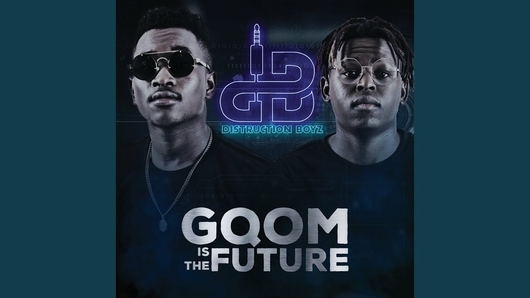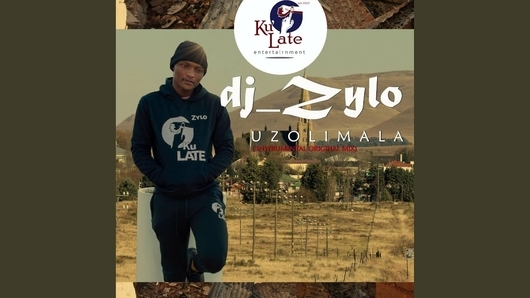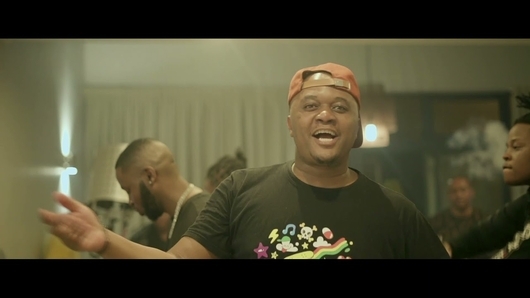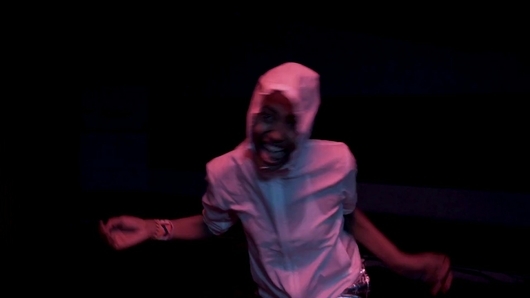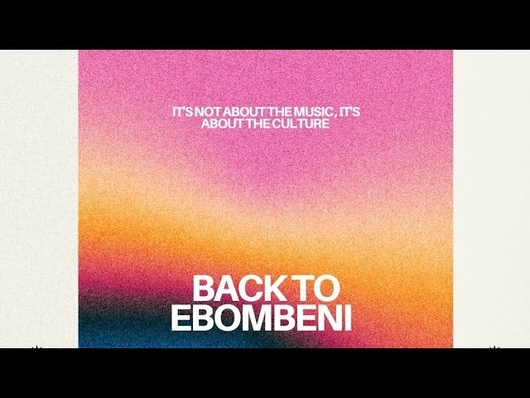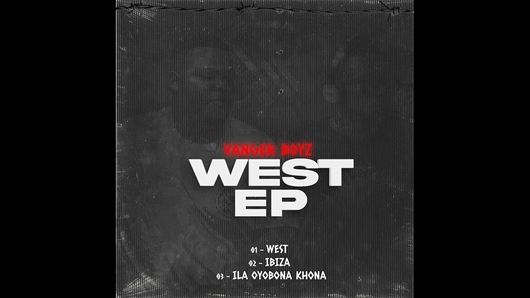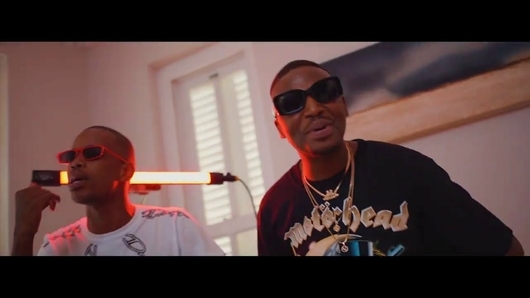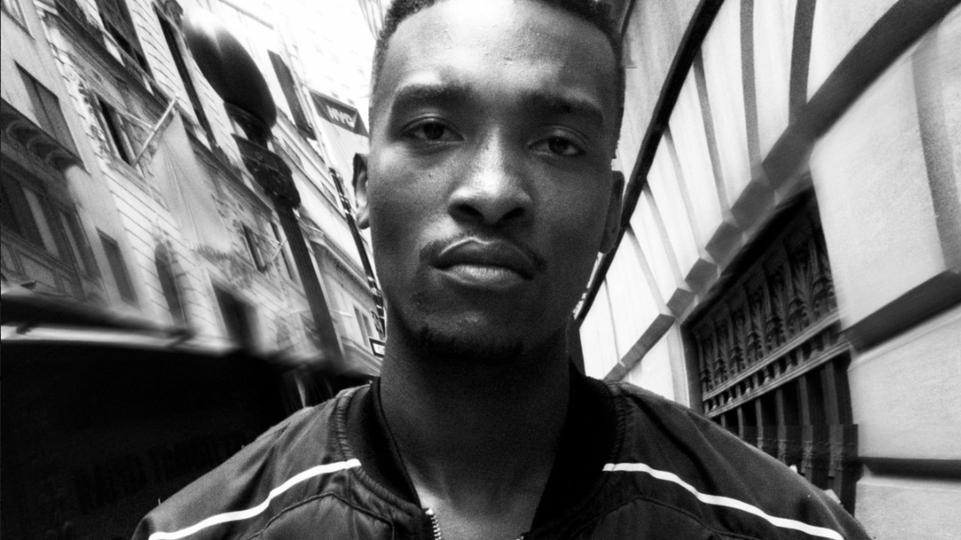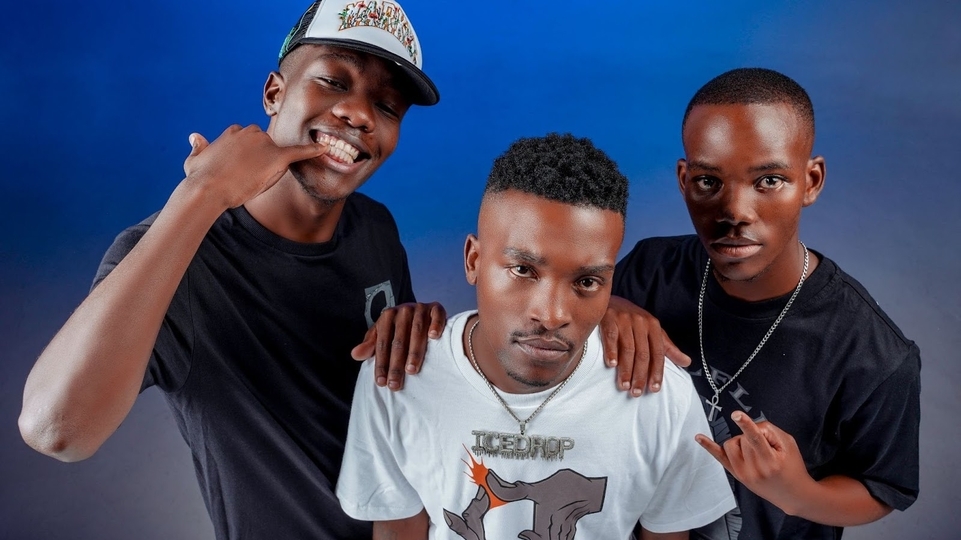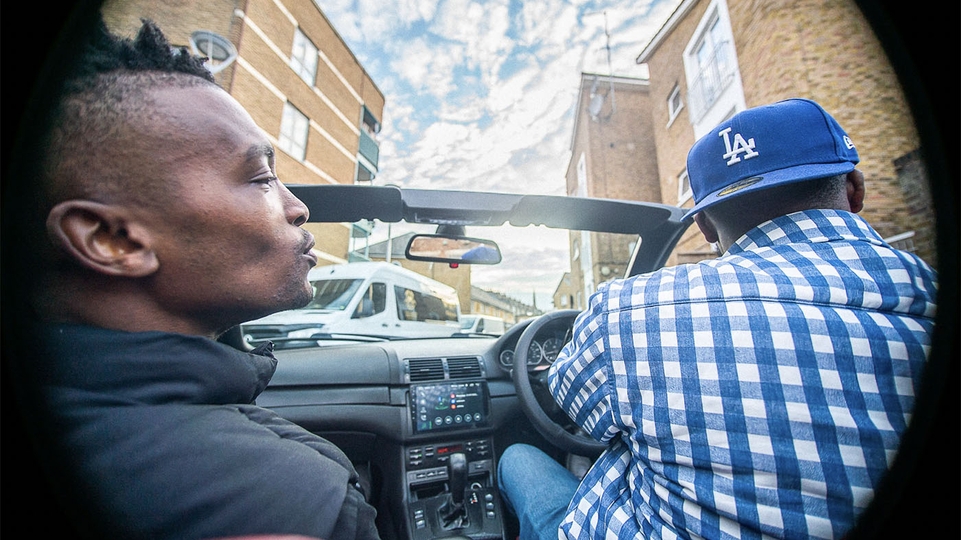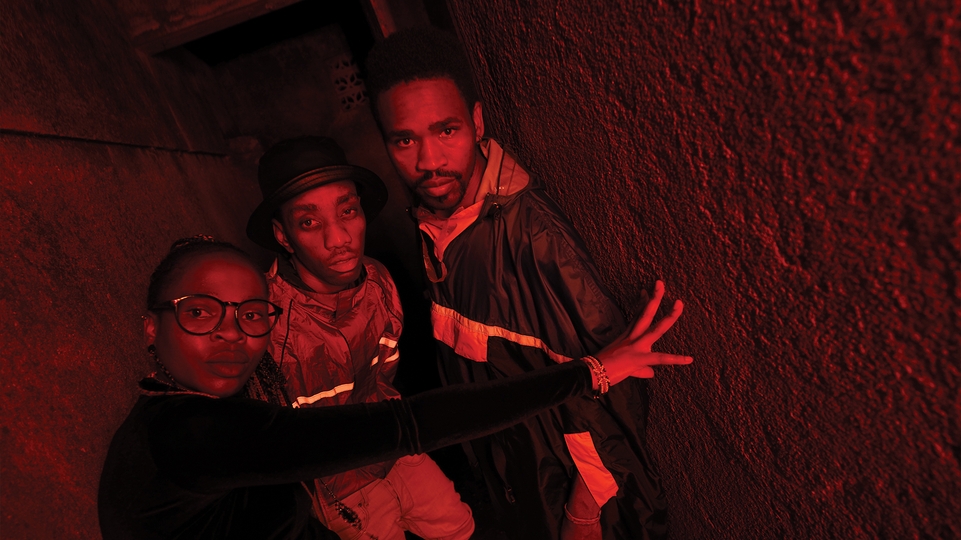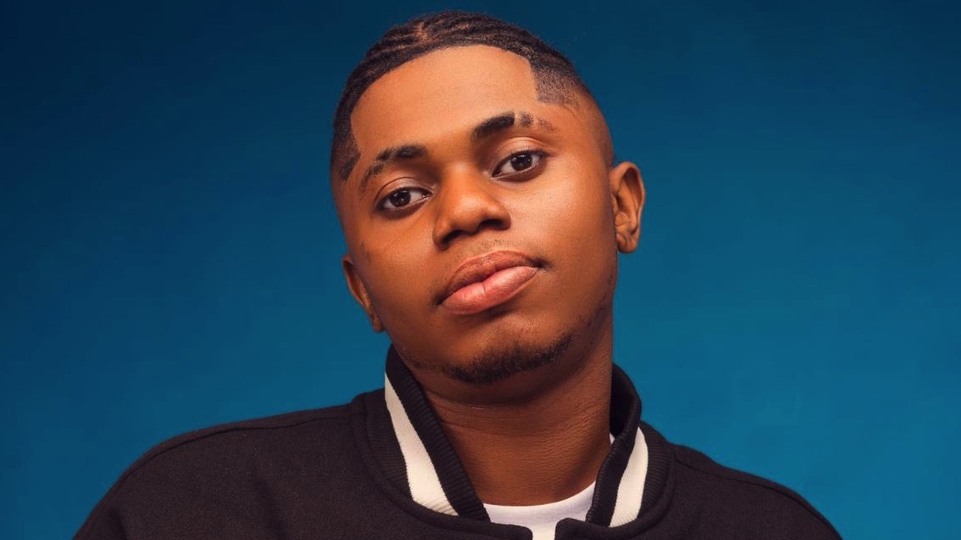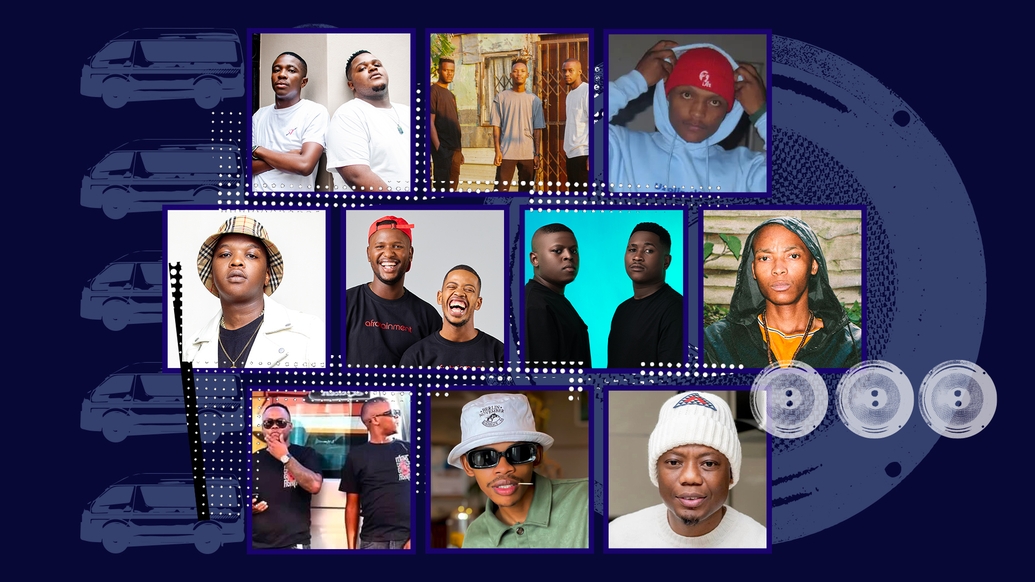
These are the most exciting gqom producers right now
Gqom retains a special place in electronic music culture across South Africa, like many sister variants of house music. The sound has also recently evolved with its more melodic, synthy-heavy cousin, sghubu, and uThayela, which translates as “corrugated iron” and is a rougher sound with a harder bassline made for clubs. Here, Makua Adimora asks: who are the producers pushing gqom forward right now?
Gqom (or igqomu) is a genre of electronic music that started in the townships of Durban, South Africa in the early 2010s. Pronounced ‘go-ohm’ (with a clicking sound in place of the ‘g’), its name is derived from the onomatopoeic pronunciation of the Zulu word for drum. Nurtured by young, creatively restless producers in South Africa, gqom is typified by a repetitive mesh of booming kicks, crashing snares, hypnotic chants and syncopated percussion, and borrows elements from house music, hip-hop, and indigenous African rhythms.
In tandem with the huge current popularity of amapiano, gqom retains a special place in contemporary popular culture across South Africa, like many sister variants of house music. Artists including Babes Wodumo, Boohle, Sho Madjozi, Moonchild Sanelly, Distruction Boyz and DJ Lag, among others, have continued to churn out gqom hits, with the latter gracing our cover in September 2021. Other examples of gqom making it to a wider audience are the placement of Babes Wodumo’s ‘Wololo’ in Black Panther in 2018, and Beyonce’s collaboration with gqom artists on the DJ Lag-produced ‘My Power’ from her 2020 Black Is King soundtrack.
“Gqom was made for dancers and it became a really big genre in Durban,” DJ Lag tells DJ Mag, describing the events that led to the sound’s origins. Born from kwaito — a variant of house music that emerged in Soweto, Johannesburg, South Africa, during the 1990s — gqom retains the pulsating rhythm signature of the genre, albeit at a much faster pace, with tracks generally coming in between 125-128bpm. But while kwaito was originally born to support the anti-apartheid campaign in South Africa, gqom was born out of much happier experiences in the party scene of Durban’s townships by producers who were experimenting with electronic music.
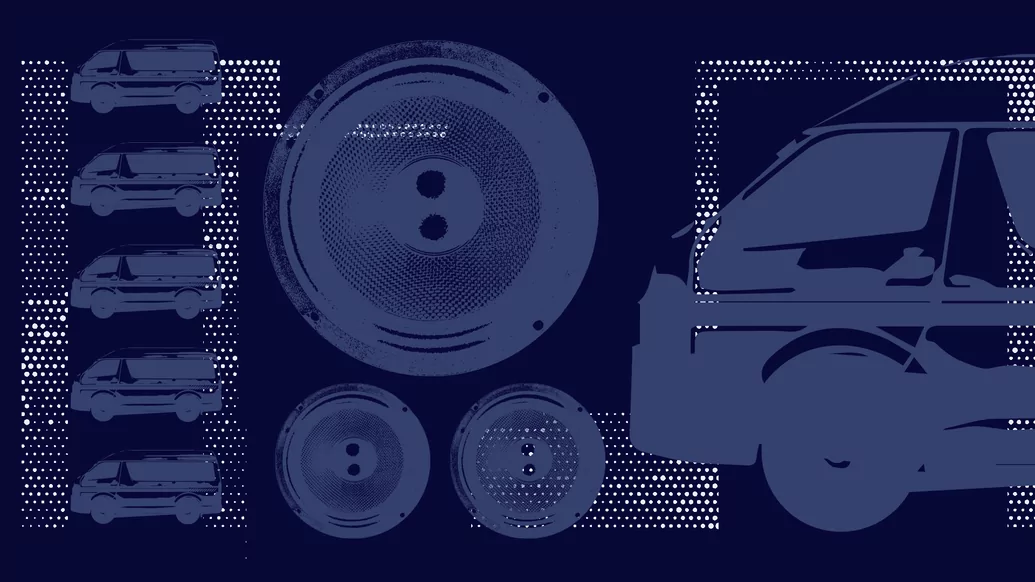
With no budgets to promote the music, sharing their tracks on WhatsApp group chats and pasting flyers on city cabs were the only options available for promotion. “I was there with one of the founders. It was Naked Boyz, and then it was Rude Boyz, and then it was me,” DJ Lag explains. “We had to push our music through BBM [BlackBerry Messenger]; we had huge groups on [there] and we would send links and tracks to those groups and the next day the track would be all over Durban. We would also make CDs and give to drivers to play in their taxis because here in Durban, we have taxis that have huge sound systems, so if you have a taxi with the best sound and music, you get a lot of customers. So we would also give drivers our music.” From the 2010s, hits like Naked Boyz’ ‘Ithoyizi’ and DJ Lag’s ‘Ice Drop’, among others, helped propel the sound to widespread popularity.
Gqom has a frantic energy, but the sound has also recently evolved with its more melodic, synthy-heavy cousin, sghubu. The subgenre switches out gqom’s rough and rugged undertones by utilising synths and other more melodic elements. Acts like Emo Kid — who dubs his sound “Futuristic Gqom” — Forgotten Souls and Moonchild Sanelly are among the mavericks pushing sghubu on a global scale. And radical players like DJ Lag are already looking to an even more innovative iteration of the genre. “I am creating a new style with Vigro Deep,” he enthuses. “That’s a blend of gqom and amapiano. We are just trying to mix both genres, to create one.”
As amapiano has taken centre stage globally, DJ Lag says that for gqom to keep its lights on, the sound’s creators need to amplify their efforts. “People are still playing gqom, if you go to Durban, Cape Town and East London,” he explains. “[But] producers need to keep releasing new music. A lot are producing gqom [and] not releasing a lot of [it]. I know [artists that] only send music to you if you are another producer, but they don’t release the music to anybody else.”
The emergence of some of the newer producers profiled below shows that the future of the sound remains bright. “Gqom started as a small genre, but it is growing,” DJ Lag enthuses. “I see the future of gqom as something monumental. I, personally, want it to be as flourishing as baile funk.” In the list below (presented in alphabetical order), we highlight the most exciting South African producers carrying the torch for gqom right now. It is worth noting that, despite the many female vocalists driving the gqom scene to new heights (as highlighted in our 2020 feature on the MCs shaping a new wave of African rap, and this feature for Paper Magazine), and DJs like Deejay Abu, there is an undeniable gender imbalance on the production side of the sound within South Africa.
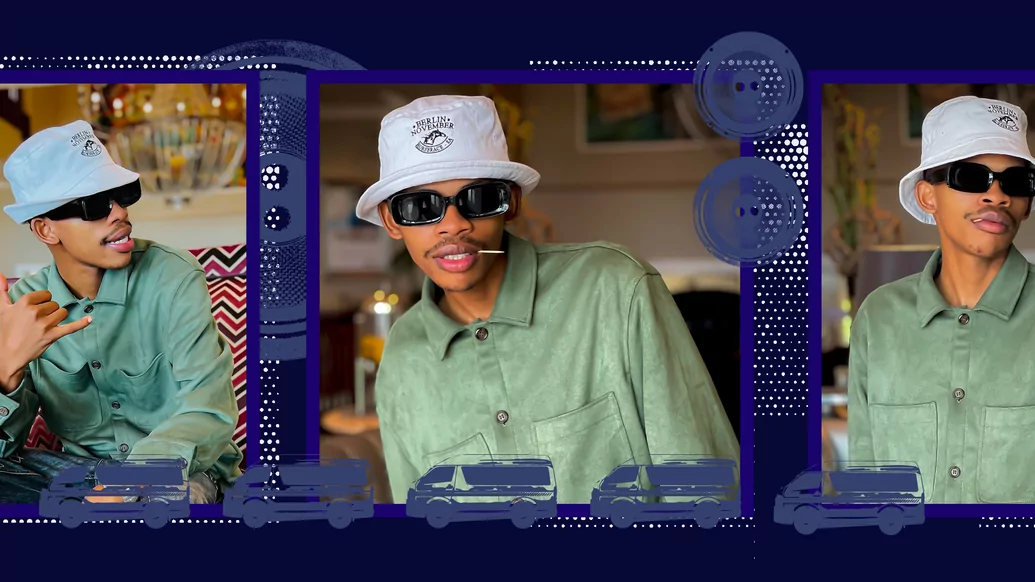
Born in Khayelitsha, Cape Town, producer Jason “Cairo CPT” Gxotiwe is one of the few gqom acts that didn’t grow up in Durban. And he brings his own spin to the genre, adding a synth-heavy, emotive touch to its menacing sonics. “I use different tones and elements with keys that sound more relatable, such as amagwijo keys, gospel keys and late ’90s sounds. My sound is groovy, but healing at the same time.” he explains. This fusion gives his music an authentic feel. He collaborates with various vocalists on tracks like ‘Sobonana Phambili’ and ‘Izigqibo Zakho 2.0’.
He also offers a more energetic sound on anthems like ‘Boi Boi’, which features Jay Rukhona CPT. He describes himself as a “game changer” and “an inspiration to the youth”, and is proud of the impact he’s made on the scene in such a short amount of time. Following the release of his 2022 album ‘Love and Light’, he’s currently “working on adding more talents to my record label Si Online Records, and doing international tours where I will be introducing [the] sgubhu genre to the rest of the world.
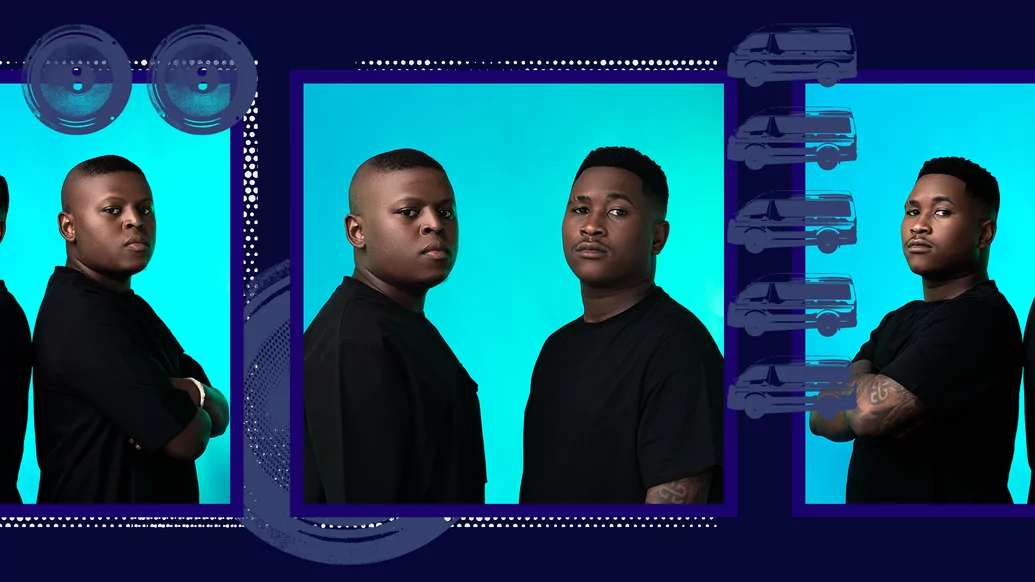
It’s impossible to chronicle the history of gqom without acknowledging the disruptive, pioneering work of the Distruction Boyz. Made up of recording producers Thobani “Que” Mgobhozi and Zipho “Goldmax” Mthembu, the KwaMashu, Durban-born duo are best known for their breakout global smash ‘Omunye’. Featuring Benny Maverick and Dladla Mshunqisi, the track was a genre-defining moment for gqom. They first broke onto the scene as producers of Babes Wodumo’s ‘Wololo’, the song that shifted gqom from the gritty sound of the underground to being more radio-friendly.
Since then, they’ve gone on to release three studio albums, including 2017’s ‘Gqom is the Future’, which is the first gqom album certified gold by the Recording Industry of South Africa (RiSA). Their more commercial approach has drawn criticisms from detractors, who believe their offerings are inauthentic. Despite this, they believe their decision to clean up the original sound and translate it in a way that everyone can understand and enjoy has contributed to the genre’s mainstream success, describing their music as “uplifting and hypnotic”.
They’re also currently working on new projects individually. GoldMax was recently a part of the 'Durban Chillies EP' and Que DJ is “building a community of like-minded people to elevate the sound” with the launch of his own record label, Amagogogo Sounds, and his first outdoor festival, We Don’t Play the Same Gqom, which took place last year and featured artists including Black Coffee.
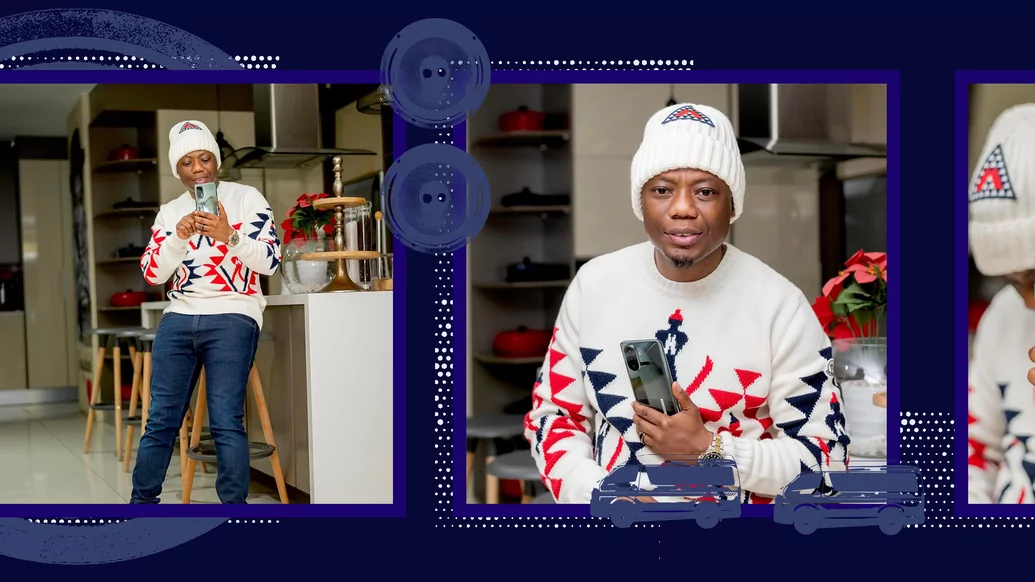
One of the older names on the scene, KwaHlabisa-born producer Mthokozisi Khathi, AKA DJ Tira, is kwaito royalty. He began his career over two decades ago, when he won the Smirnoff SA DJ Knockout competition in 2000, and released the compilation album ‘Real Makoya’ in 2001. A member of the South African musical group, Durban’s Finest, Tira is renowned as a pioneer of the city’s house and kwaito scene in the early 2000s, transforming Durban into South Africa’s dance music and entertainment hub.
DJ Tira was one of the first artists to popularise gqom, with songs like ‘Champagne (Ine Turn Up)’, featuring amapiano heavyweight DJ Maphorisa, DreamTeam, and Donald. In 2020, he released his fourth album, ‘21 Years of DJ Tira’, a compilation honouring all the varying sounds he’s gathered in his sonic artillery over the years, which has been certified platinum by the Recording Industry of South Africa (RiSA). Tira remains a cornerstone for the Durban gqom scene, nurturing newer talent like Distruction Boyz through his label Afrotainment, and collaborating with other new school acts like General C’mamane, Sizwe Mdlalose and Worst Behaviour.
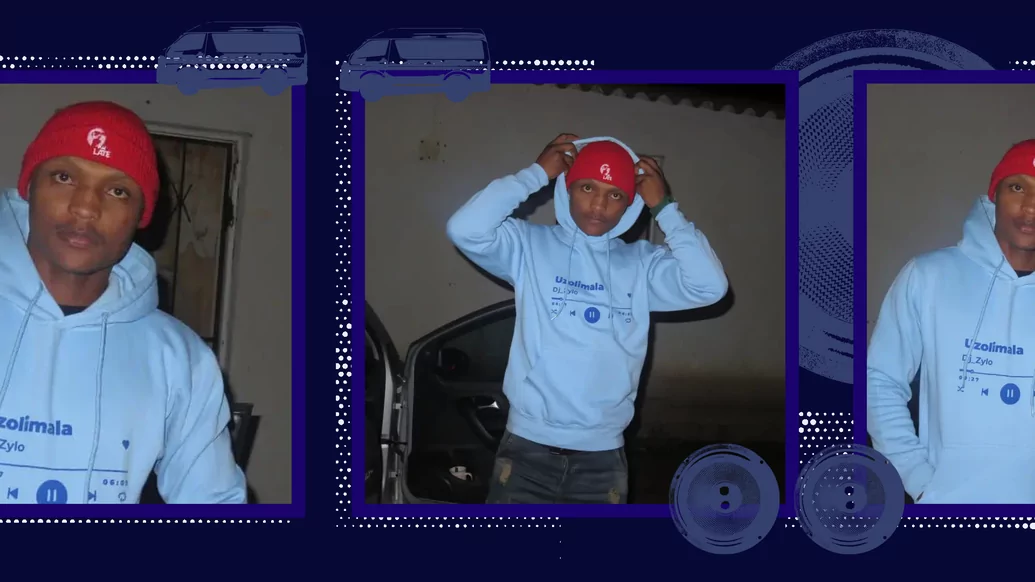
The ebullient synths that characterise sghubu producer Dj_Zylo’s smash hit ‘Uzolimala’ evoke a feeling of unabashed joy and freedom — and it’s a major reason for its TikTok success. Born and raised in Dordrecht, a small town on the Eastern Cape in South Africa, Zukisani “Dj_Zylo” Fihlani is a DJ, event organiser, and label owner of KuLate Entertainment. He specialises in gospel gqom, weaving in buoyant chords and synths over a bed of thumping drums.
He had been a renowned name on the underground scene, releasing club anthems like ‘Hometown Glory’ and ‘Nkosi Uzundigcine’, but it wasn’t until the release of his TikTok famous hit in 2021 that his sound was propelled to a whole new audience. In March last year he released his second album, ‘Chasing My Dream’, and in August he followed up with ‘Own Lane, Own Pace’, featuring songs like ‘Emaxhoseni’, ‘Take Care’, and ‘Step back’.
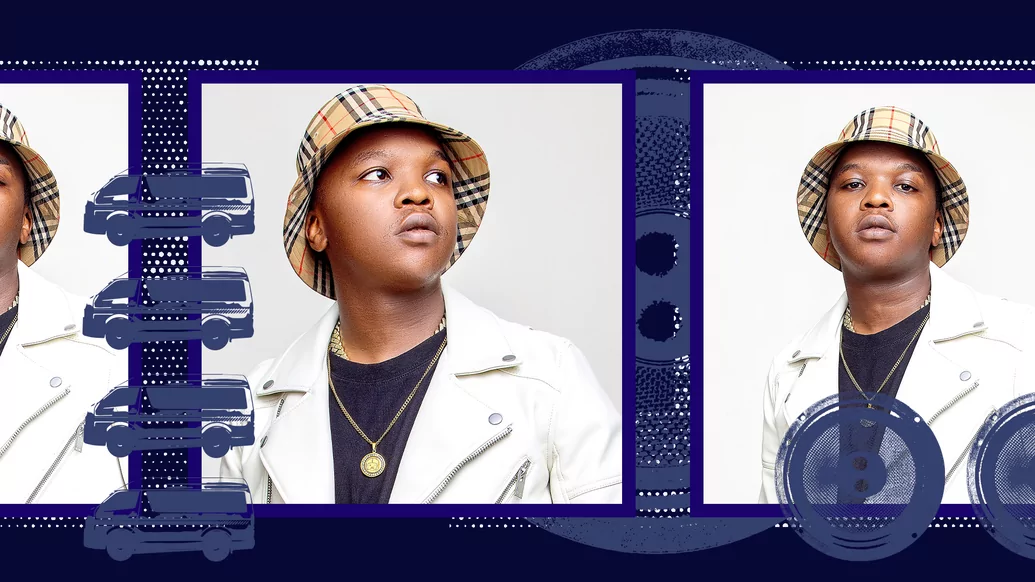
Dlala Thukzin first broke onto the scene as a producer on Babes Wodumo’s genre-defining 2016 debut, ‘Gqom Queen, Vol. 1’, thrilling listeners with the grooves on ‘Umngan’ami’. He has since gone on to establish himself as a prominent name in gqom’s mainstream, releasing hit songs like 2019’s tribal house-inspired ‘Naba Laba’. Born Thuthuka Zindlovu, in Lamontville, Durban, his early days of helping DJ uncle with his sound equipment sparked his interest in music and production.
Thukzin is famed for adopting elements from other dance genres, from amapiano to Afrotech, and fusing them with gqom. His 2021 hit ‘Phuze’ was one of his first successful forays into amapiano, combining the lush pads of the popular genre with gqom’s thumping percussion. “I listen to a lot of genres and when I make music, I try to accommodate everyone,” he explains. “I try to infuse quite a number of sounds when I produce. People want something new all the time and I always try to offer that.” His 2022 album, ‘Finally Famous’, also combines his gqom roots with more European-friendly soundscapes, a move that possibly falls in line with his future plans: “I plan on taking my career international. I wish to see the Dlala Thukzin recognised globally.”
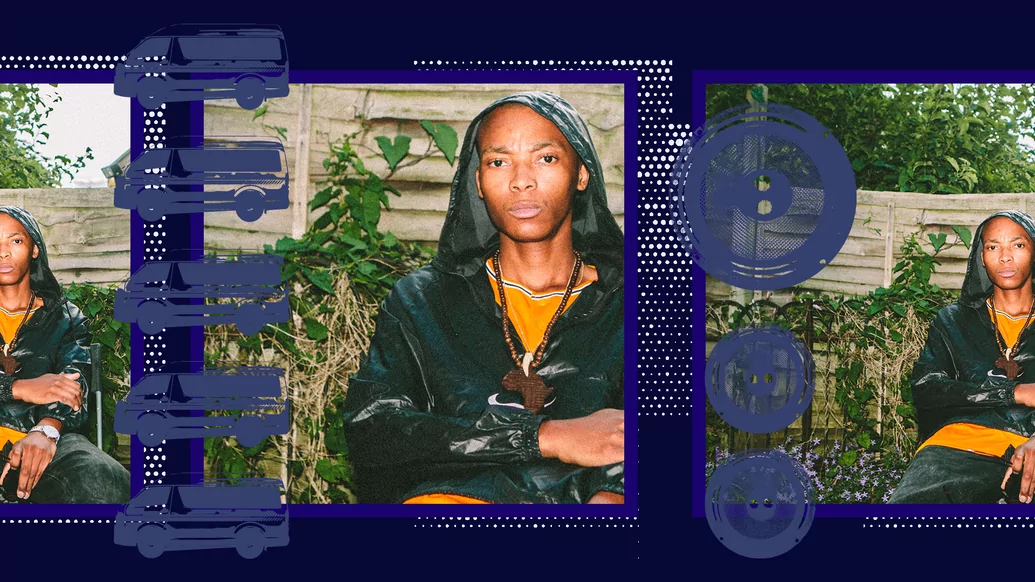
Durban producer Griffit Vigo has been making music since 2004, and is heralded as one of gqom’s earliest originators, alongside the likes of DJ Lag, Rudeboyz and Nasty Boyz. Known for his anthemic ‘Ree’s Vibe’, as well as his ‘DJ’ EP, his sound stays true to the dark and abrasive roots of the genre. He’s coined his signature sound as “Electro Gqom Music” (EGM), describing it as “a dark futuristic sound that is upbeat, esoteric, percussive, and spiritual”, which he believes “has greatly influenced other gqom producers to create a similar style”.
In 2020, he released his first full-length project, ‘I Am Gqom’, an album he deems was a response to gqom’s more commercial leanings. In December 2021, he released his follow-up six-track EP ‘Art is Talking’ via Belgian label Maloca Records. These days, while Vigo is well aware of his legendary status as a gqom pioneer, he still yearns for more international recognition and hopes to take his sound global. “I’m currently seeking artist management and getting my music and name onto the commercial scene,” he says. He’s also working on a new EP which is due to be announced soon.

Gqom may be synonymous with Durban’s spirited club culture, but that hasn’t stopped producers from other cities from attempting their own interpretations of the vibrant genre. Cape Town duo Mshayi & Mr Thela (real names Madoda Mbeki and Siphiwe Sihawu) demonstrated Cape Town’s take on gqom, often referred to as “emotive” or “gospel gqom” until they parted way earlier this year (2023).
The sound is typified by its use of dynamic basslines, lush strings and saws, leads, pads, and other synths, all with syncopated drums to create melodies that are reminiscent of South Africa’s charismatic church hymns. The duo first met while working on Babes Wodumo’s 2020 album ‘Idando Kazi’, collaborating on the songs ‘Shaya’ and ‘iParty.’
In 2020, they released their first EP, ‘Make Cape Town Great Again 2.0’, a 25-tracker showcasing all they had to offer as a duo. Between their record label, Shaya Records, and the Mshayi-co-owned venue, Rands Cape Town, the pair have played a vital role in reinvigorating interest in their city’s often-overlooked gqom scene. They will now be focusing on solo endeavours.
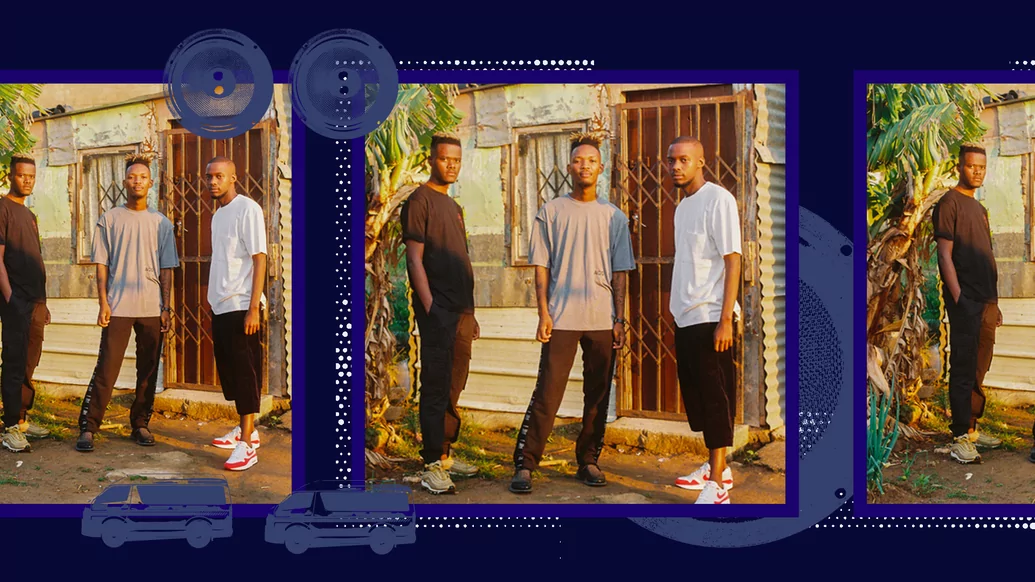
Hailing from Durban, Omaqoga are a trio with a grittier approach to gqom than most. “It’s not bass unless you can feel it,” reads their Facebook page bio — a perfect summary of the trance-inducing sounds that characterise their music. They’ve coined the sound uThayela (translated literally as “corrugated iron”), to describe a rougher sound with a harder bassline that is made for clubs. Whether producing or mixing, they always emphasise the darker and rawer side of pan-African club music. The group released their first project, ‘Feel the Bass’, in 2022, and have since gone on to work with the likes of DJ Lag, Que DJ, Zvri, Jimbo Soundz, Cultivated Soulz, Scelo Gowane, Madanon and Newlandz.
They recently released the deluxe version of their 2022 album, ‘Back to Ebombeni’, an 11-tracker paying homage to the roots of their artistic journey. “‘Back to Ebombeni’ represents our core identity as a collective,” they explain over email. “The EP, influenced by ibomba, a minibus taxi from Durban, KZN — synonymously known for playing high energy unreleased gqom music — is inspired by where we originally met, Ebombeni, and the music we were making at the time, in that environment. It is a showcase of Omagoqa’s roots and original hard-hitting sounds.”

Born and raised in Durban, DJ/producer duo Vanger Boyz are comprised of Manelisi ‘Zassh’ Khanyile and Siyabonga ‘Masiya Song’ Mthembu. Their sound is simple and raw, with edgy, stripped-back rhythms that call back to early iterations of the foot-stomping genre. ‘Broke But Talented’ and ‘Nokia’, both from 2021’s ‘Summer Experience Package’, merge splintered percussion with menacing synths and crashing snares, while TikTok favourite ‘Ila Oyobona Khona’ enlists a recurrent whistle over thumping basslines.
“We love raw sounds,” they tell DJ Mag over email. “Our sound is raw with heavy bass that will make you lose your mind on the dancefloor.” More recently, though, they’ve been experimenting with the lighter sounds of sghubu — most evident on 2022’s ‘Novel’. “We use different sounds, and elements,” they add, further explaining their creative process. “We love heavy bass, percussions must also be present on the song, and we make sure that our beats are not empty; all the segments of the song must be balanced.” Revered in the underground, they’re eager to break borders into a more mainstream consciousness: “Our dream is to continue doing what we love, travel the world, spread this gqom sound, and make people dance to our music globally.”
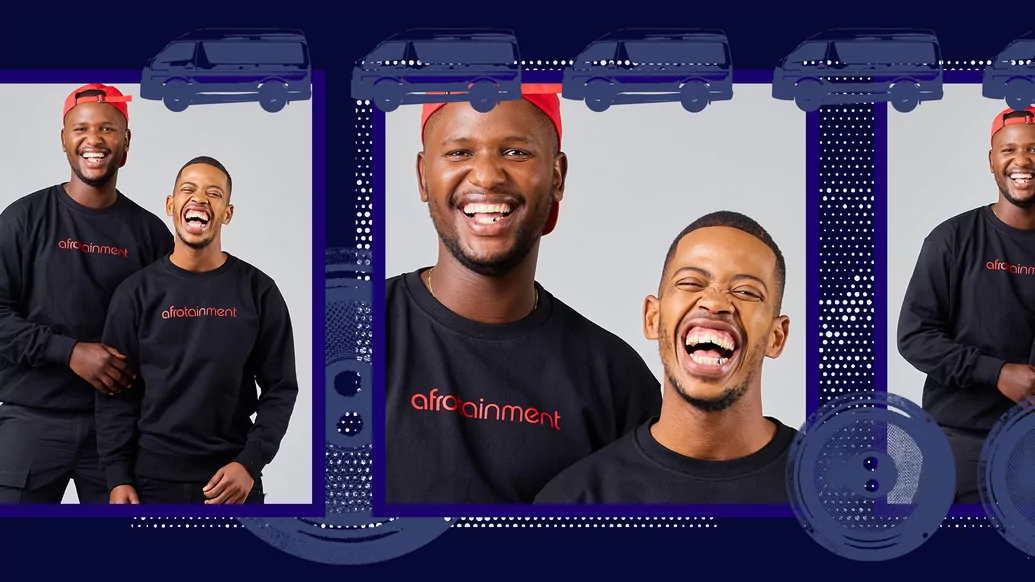
Durban gqom duo Worst Behaviour — made up of club DJs/producers Phelelani ‘Pex’ Buthelezi and Mfanafuthi ‘Boi again’ Buthelezi — are widely recognised as innovators holding the sound down in the 2020s in the face of the amapiano invasion. Born and raised in Durban township Inanda, their breakout single, ‘Samba Ngolayini’ — a collaboration with Gento Bareto and gqom pioneer DJ Lag — was a street anthem upon its release in 2020. For the remix, they enlisted gqom heavyweights DJ Tira, Tipcee, Beast, and Okmalumkoolkat — a move that introduced them to the rest of South Africa and propelled them to the forefront of gqom’s mainstream. They describe their sound as “commercial gqom”, infusing music that caters to more urban palettes and tastes, resulting in music that “everyone can listen to and enjoy”.
They have collaborated with artists like Skillz, Dladla Mshunqisi, and Babes Wodumo, but they still have more pan-African ideals: “We’d love to explore other sounds from Africa and collaborate with fellow African musicians, because the heart of music originated from home,” they explain. “Collaboration with other international artists will be a long-term goal. Making more music that more people can listen to and relate to, but never losing the essence of gqom, is a skill that one day will result in our ultimate success.”


